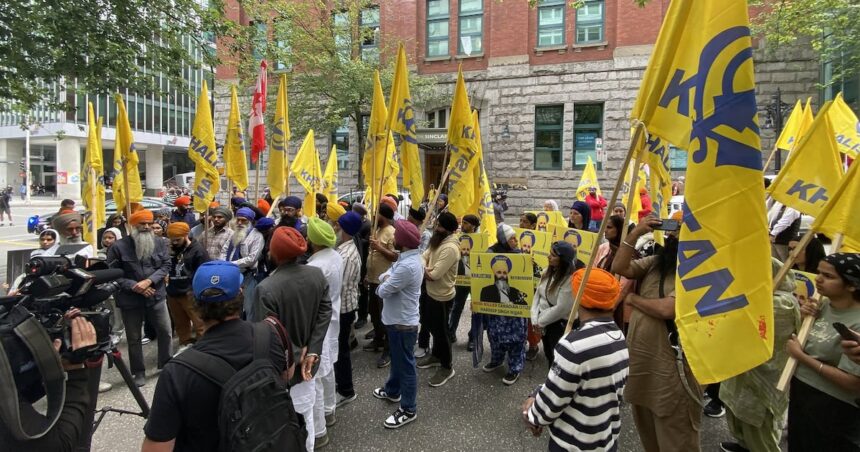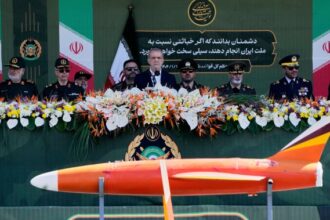The diplomatic frost between Ottawa and New Delhi shows little sign of thawing as protesters gathered across Canada yesterday to mark the one-year anniversary of Hardeep Singh Nijjar’s assassination. The killing, which Canadian Prime Minister Justin Trudeau has directly linked to Indian government operatives, continues to cast a long shadow over bilateral relations that were once considered promising for both nations.
“We stand here today not just to remember Nijjar but to demand accountability,” said Moninder Singh, spokesperson for the British Columbia Gurdwaras Council, addressing hundreds who assembled outside the Surrey gurdwara where Nijjar was gunned down on June 18, 2023. “The Canadian government has made accusations, but we’re still waiting for justice.”
The commemorations come amid reports that Canadian and Indian officials have engaged in quiet diplomatic discussions aimed at normalizing relations. Foreign Affairs Minister Mélanie Joly confirmed last week that “preliminary talks” had taken place, though she emphasized that Canada’s investigation into Nijjar’s killing would continue unimpeded.
This potential diplomatic thaw has alarmed many in Canada’s Sikh community, who fear accountability might be sacrificed for political expediency. According to Canada News analysis, the case has become a flashpoint for Canada’s 770,000-strong Sikh population, many of whom view Nijjar as a martyr for the Khalistan independence movement.
India has vehemently denied any involvement in Nijjar’s death, dismissing Canada’s allegations as “absurd” and “politically motivated.” New Delhi maintains that Nijjar, who advocated for an independent Sikh homeland, was a terrorist who threatened India’s territorial integrity – a characterization his supporters strongly reject.
The diplomatic fallout has been severe. Both countries expelled each other’s diplomats last year, trade negotiations stalled, and visa processing for Canadians traveling to India faced significant delays. Economic experts cited by CO24 Business estimate that the diplomatic freeze has cost both nations hundreds of millions in potential trade and investment.
“India represents a crucial market for Canadian exports, particularly in agriculture and resources,” explains Dr. Amrita Singh, international trade specialist at the University of Toronto. “This continued impasse hurts both economies at a time when diversification away from traditional markets is increasingly important.”
The anniversary also coincides with India’s growing geopolitical ambitions under Prime Minister Narendra Modi, who recently secured a third term despite a reduced parliamentary majority. According to World News analysis, Modi’s government has adopted increasingly assertive positions toward diaspora communities it perceives as threatening to India’s territorial integrity.
For Canada, the case presents a delicate balancing act between upholding sovereignty and pursuing strategic economic interests. “Trudeau faces tremendous pressure from domestic constituencies who demand justice, while simultaneously navigating the geopolitical reality that India is an indispensable partner in the Indo-Pacific,” notes foreign policy analyst Rajan Menon.
As memorial events continue throughout the week, the question looms large: can these two democracies find a path forward that addresses serious allegations of transnational repression while salvaging a relationship crucial to both nations’ strategic interests? Or will the shadow of Nijjar’s killing continue to define India-Canada relations for years to come?










